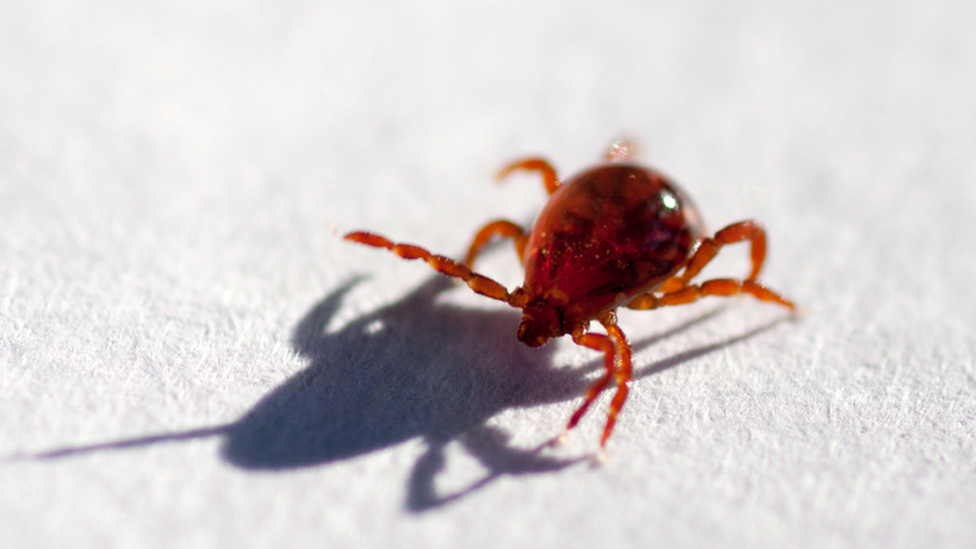Crimean-Congo haemorrhagic fever case found in UK
- Published

UK officials say they have found a confirmed case of a viral illness called Crimean-Congo haemorrhagic fever in England.
The woman, who is being treated at the Royal Free Hospital in London, had recently travelled to Central Asia, where this tick bite infection is endemic.
The disease does not spread easily between people, meaning the risk to the public is very low, say experts.
It is not carried by ticks in the UK.
It is the third known case of the fever in the UK, with prior cases reported in 2012 and 2014.
The disease can be caught from contact with infected blood or tissues from a person or animal.
Symptoms then develop quite quickly - after a few days - and include fever, aches, nausea and vomiting, and a rash caused by bleeding into the skin.
Patients can become severely ill with organ damage, which can be fatal.
Chief Medical Advisor at the UK Health Security Agency, Dr Susan Hopkins, said robust infection control measures were being followed at the hospital that is caring for the patient.
"We are working to contact the individuals who have had close contact with the case prior to confirmation of their infection, to assess them as necessary and provide advice," she added.
The woman was diagnosed at Cambridge University Hospitals NHS Foundation before being transferred to The Royal Free Hospital.
Dr Sir Michael Jacobs, consultant in infectious diseases at the Royal Free London, said: "The Royal Free Hospital is a specialist centre for treating patients with viral infections such as Crimean-Congo haemorrhagic fever.
"Our high-level isolation unit is run by an expert team of doctors, nurses, therapists and laboratory staff, and is designed to ensure we can safely treat patients with these kind of infections."
People living in or visiting endemic areas should use personal protective measures to avoid contact with ticks, including:
avoiding areas where ticks are abundant at times when they are active
using tick repellents
checking clothing and skin carefully for ticks